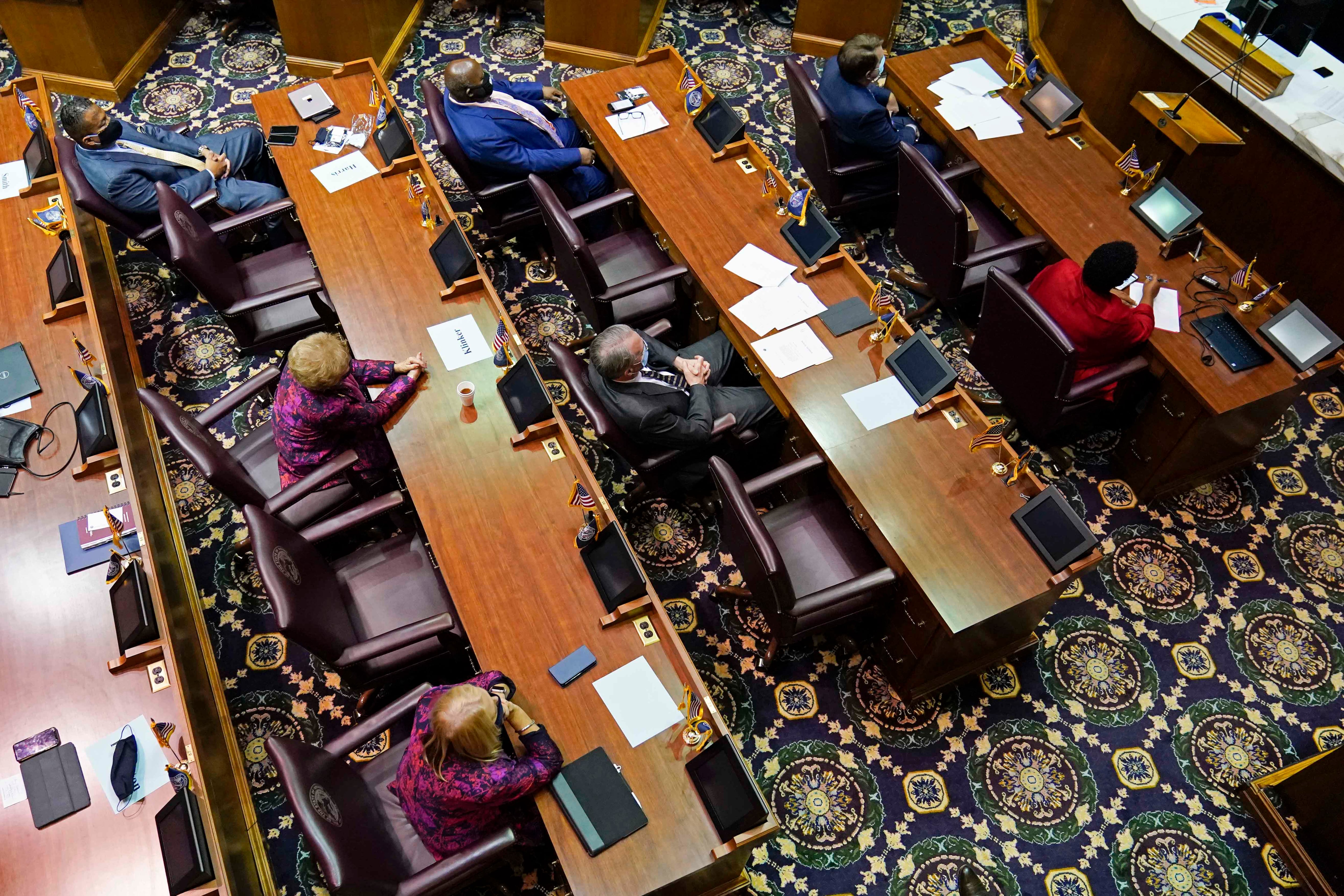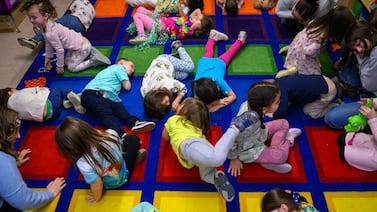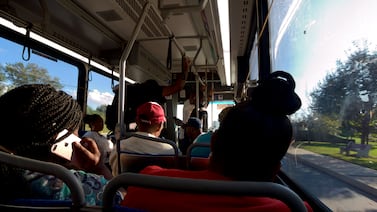As Indiana lawmakers prepare to create the state’s next biennial budget, education advocates have coalesced around a few key issues that they say will best support Hoosier students and families.
They see expanding access to both early learning and higher education as critical to the state’s economic health. And they hope to see another historic funding bump for K-12 education in order to help alleviate rising operating costs and school staffing shortages.
They have support from Gov. Eric Holcomb, who shares at least a few of the advocates’ priorities.
It’s not yet clear how responsive legislators will be to these requests, though advocates say they’re hopeful. As of Friday, the education bills filed ahead of Indiana’s legislative session include another attempt to make school board elections partisan, and curriculum-focused bills to mandate teaching cursive, sex education, and internet safety.
Here’s what advocacy groups say should be on the legislature’s radar in 2023.
Increased funding for schools sought
Education watchers expected to see an increase in school funding as the state heads into a budget year with a surplus on the books.
Holcomb on Wednesday proposed a nearly $1.2 billion increase in K-12 tuition support, which funds both public schools and the state voucher program. Holcomb also said he supported continuing the state’s work to raise teacher salaries to an average of $60,000.
The Indiana State Teachers Association said increased funding is key to addressing teacher shortages and meeting the state’s salary goals.
“Without at least meeting inflation, services for students will continue to suffer,” the union said in its list of policy priorities. “Simply repeating Indiana’s historic commitment from its last budget would not meet today’s impact of inflation.”
The governor’s proposal represents a 6% increase in funding for the first year of the budget — a figure that’s in line with the Indiana School Boards Association’s recommendation to help schools meet increased operating costs. Terry Spradlin, the group’s executive director, said inflation has affected everything from food service to busing.
The final increase will likely be dependent on spring budget forecasts, said Denny Costerison of the Indiana Association of School Business Officials. He pointed out that in the 2021 budget, schools received more than expected after a positive economic outlook.
But requests for more funding aren’t confined to the tuition support formula.
Many education advocates support the Department of Education’s request to increase funding for students who are learning English, which is allocated outside of the formula. Groups have also called for more funding for special education services, especially those that are considered unusual or relatively expensive, like out-of-state schooling.
Holcomb’s budget proposal includes increasing funding for English learners to $50 million a year, in line with the education department’s request.
Without the increases, district officials say they will have to continue using funds meant for students from low-income backgrounds to cover English learner and special education costs.
“In talking to legislators, no one is saying that’s not needed or we’re not looking at it,” Costerison said of the additional funding.
More for preschool and child care
Expanding access to preschool and child care has been a near-universal call this year from education groups, the Indiana Chamber of Commerce, and Holcomb. It’s too early to tell if lawmakers will acquiesce — one bill filed ahead of the session would seek to double the number of preschool grants awarded in Marion County.
The state has made strides in this area over the past decade, said Samuel Snideman, vice president of government relations at United Way of Central Indiana, including by funding all-day kindergarten and establishing the On My Way PreK assistance program for low-income families.
Still, there’s room to grow, he said, as well as a need to challenge the notion that early education is solely a parent’s responsibility.
“We think that making high quality early childhood education possible for as many families — especially families in poverty — as possible is worth the state’s investment,” Snideman said.
“There are lots of families where every parent available in the house has to work, and even then, they can’t afford childcare.”
United Way is calling for the state to expand eligibility for its two child care programs by raising income limits to 185% of the federal poverty level — a higher threshold than the 138% limit Holcomb has proposed.
The Indiana School Boards Association would like to see that threshold raised even higher to 300% of the federal poverty limit, which would match the income requirements for the state’s K-12 voucher program.
Spradlin said research has shown that every dollar spent on high-quality early learning provides at least a $4 return on the investment.
“There’s been hardly any pushback,” Spradlin said of talking to legislators about early learning. “It’s that there are so many priorities, we’ll see what we can fund.”
Other proposals include establishing a universal preschool program, incentivizing employers to create child care programs, and funding overall wage increases for child care employees.
Apart from funding, several groups have zeroed in on loosening regulations unrelated to health and safety in order to allow more child care programs to open.
Snideman said the state could streamline the inspection process to help established high-quality providers open additional locations in other parts of the state.
Auto-enrolling students in 21st Century Scholars
Another popular proposal this year is to automatically enroll all eligible students in the 21st Century Scholars program, which pays for college tuition costs.
The program is open to seventh and eighth grade students in Indiana who come from low-income backgrounds, and has been linked to increased college enrollment and completion rates.
But advocates would like to see greater participation. The state’s Commission on Higher Education in December found that fewer than half of all eligible students enroll.
According to the Indiana Youth Institute, while 69% of Black Hoosier students are eligible for the 21st Century Scholars program, only 17% are enrolled.
The higher education commission recommended in December a streamlined enrollment process using Indiana Department of Education and Department of Revenue data to mark students eligible.
“It’s an easy key to turn,” said Snideman of United Way.
Proposals focus on school staffing, retention
Groups have also put forward legislative proposals to address staffing and retention challenges in Indiana schools.
Both the Indiana State Teachers Association and the school boards association have called for more funding to increase the number of psychologists, counselors, and nurses in schools, saying that Indiana’s ratios far exceed recommendations.
For example, while the recommended ratio of students to psychologists is 500-to-1, Indiana has just one counselor for every 1,674 students, said Spradlin of the school boards association.
“We want to free up teachers to teach in the classroom, and not have their efforts diminished by focusing on wellness issues or health issues or behavioral issues,” Spradlin said.
The school boards association would also like to see the state re-establish a mentorship program that paid veteran teachers a stipend to support new teachers. At a cost of $1,000 per mentor, the program would cost an estimated $3 million a year, Spradlin said.
The teachers association, meanwhile, has renewed its call to restore teachers’ rights to collectively bargain their working conditions, and asked for paid parental leave for teachers.
Current laws, according to the association, “are another source of workplace frustration particularly when new parents are forced to return to the classroom before they are ready and/or effectively take a pay cut to have a child.”
Aleksandra Appleton covers Indiana education policy and writes about K-12 schools across the state. Contact her at aappleton@chalkbeat.org.







